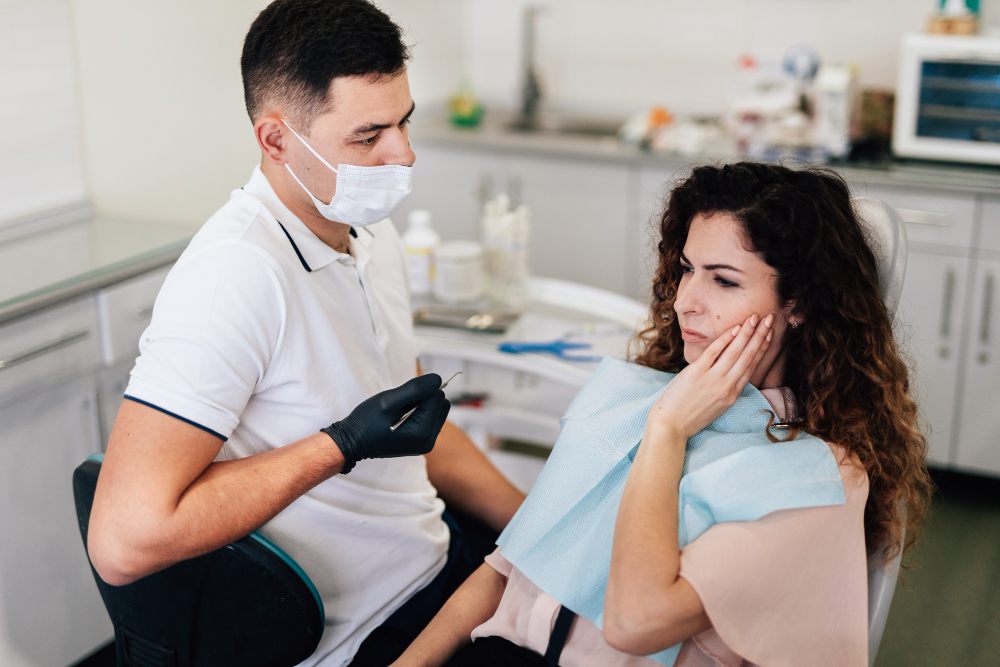There are plenty of misconceptions related to dental health that patients believe, which can be causing more harm than good. As medical professionals, it’s important to debunk these myths and provide factual evidence so patients can separate fact from fiction. In this blog post, we’ll cover the top ten dental myths that patients need to stop believing.
Myth #1: Brushing More Frequently Will Result in Cleaner Teeth
Although we are told to brush our teeth before each meal, it is not always necessary. Brushing with too much force and frequency can lead to enamel erosion, making our teeth more vulnerable to tooth decay, tooth sensitivity, and cavities.Dentists recommend brushing teeth at least twice per day with a fluoride toothpaste and flossing at least once a day. Doing so will effectively clean the mouth without causing damage—keeping a regular schedule is more important than constantly brushing.
Myth #2: Teeth Whitening Will Damage Your Teeth
Teeth whitening is considered a cosmetic procedure commonly used to brighten and enhance the overall appearance of your smile. However, one of the biggest misconceptions is that this procedure is harmful to teeth.The truth is, teeth whitening products have been clinically tested and proven to be safe for teeth when used in moderation. Overusing teeth whitening products can cause enamel wear and increased tooth sensitivity, so it should be used as instructed by your dentist.
Myth #3: Sugar is the Only Cause of Tooth Decay
While it is believed that eating too much sugar is the root cause of tooth decay, it’s not entirely true. Tooth decay results from an acidic environment in the mouth after consuming sugary or starchy foods; this leads to bacteria growth and the formation of plaque. But one single food’s ingestion isn’t solely responsible for dental health, it’s having good oral standards, brushing twice a day, flossing, eating a well-balanced diet, and visiting your dentist regularly that will contribute to maintaining healthy teeth.
Myth #4: You Shouldn’t Visit the Dentist If You Have No Problems
You might think that you don’t need to visit the dentist when you don’t have any dental issues, but seeing them regularly is key to good oral health. A check-up for oral health can detect any possible issues that may be arising, including tooth decay, cavities, or gum disease.A dentist will routinely check for cavities and gum disease while cleaning teeth, identifying any potential problems early on.

Myth #5: Baby Teeth are Not Important
Since baby teeth eventually fall out, many parents hold the opinion that it is not necessary to take excellent care of them. However, baby teeth play an essential role in children’s oral health and overall development.Baby teeth help the child speak, chew food, and aid in maintaining proper space to help incoming adult teeth in the proper position. Failure to take good care of them can lead to decay and a higher risk of tooth decay and other dental issues.
Myth #6: Mouthwash is Only for Freshening Breath
Mouthwash is not only helpful for freshening breath but also in preventing gum disease, tooth decay, and cavities. Various mouthwashes are designed to combat particular oral health issues, for instance, gingivitis.Moreover, rinsing with mouthwash can’t replace brushing and flossing, but it can prove helpful when used in combination with regular oral hygiene.
Myth #7: Braces are Only for Cosmetic Purposes
Braces can help correct overbites, gaps between teeth, underbites, and crooked teeth, but their purpose is not limited to cosmetics. Straight teeth can also help bite alignment, making chewing, speaking, and even breathing (in some cases) more comfortable and efficient.Braces can also help achieve better oral hygiene by making it easier to floss and brush teeth.
Myth #8: Gum Chewing is Equal to Brushing Teeth
Chewing gums can help stimulate the production of saliva in your mouth, but it does not replace brushing your teeth. Gum chewing can help clean residues from foods, but true dental cleaning includes brushing and flossing your teeth.
Myth #9: Bleeding Gums is Normal
Bleeding gums can be an indication of gingivitis and other severe dental issues. It can be from brushing too hard or it may also be due to gum diseases caused by plaque buildup. Bleeding gums are not usual and should be reported to a dentist immediately.
Myth #10: Teeth Whitening is for a Lifetime
Teeth whitening, no matter what method you use, is not permanent. Teeth will eventually lose their bright and white color, depending on how much coffee, tea, or wine you drink or how much you smoke.Whitening toothpaste and other teeth whitening products can help in the short term but are not a long-lasting solution. Whitening treatments will require maintenance and touch-ups to retain their results, and excessive use can lead to damage of the enamel
Conclusion:
There are various myths related to dental health that people still believe, and it is essential to dispel them to achieve optimal oral hygiene. Understanding the truth about dental care can help people take better care of their teeth and gums. Proper dental hygiene, including regular brushing, flossing, and routine check-ups, can keep your teeth and gums healthy and prevent oral diseases. It is also vital to get professional advice from your dentist and follow their recommendations to maintain good dental health. Remember that prevention is better than cure, and by taking the necessary steps to care for your teeth, you can avoid serious dental problems.


